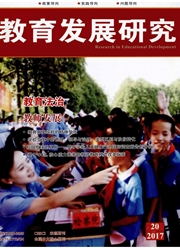

 中文摘要:
中文摘要:
本文采用北京市的调查数据研究国有部门和私人企业职工的收入风险、教育水平与其职业选择之间的关系。结果表明:未接受高等教育的个体比接受过高等教育的个体有更大的收入风险;越愿意冒风险的个体,越不会选择去国有部门工作,这反映了风险态度会影响个人的职业选择;收入、工作压力和社会地位是个人选择去国有部门工作的三个主要因素。据此,文章提出了完善劳动力市场工资制度促进大学毕业生就业的建议。
 英文摘要:
英文摘要:
According to the survey data from Beijing,the relationship among earning risk,educational level and occupational choice of workers from state-owned sectors and private sectors is studied in this paper.The results show that firstly,higher educated individuals have less potential earning risk than low educated ones;secondly,people who are willing to take risk have more likely to work in state-owned sector,which hints that occupational choice can be affected on the individual risk attitude;moreover,the income,work pressure and social status are the main factors that impact the individual choosing work in state-owned sector.In this research,earning risk compensation has only been given to those are higher educated person(post-graduate) in private sector,which hint that unequal wages treatment to individual are present and it have been largely ignored.The paper has also given some suggestions and advice on the management of current labor market's wage system to promote graduates' employment.
 关于廖娟:
关于廖娟:
 同期刊论文项目
同期刊论文项目
 同项目期刊论文
同项目期刊论文
 期刊信息
期刊信息
